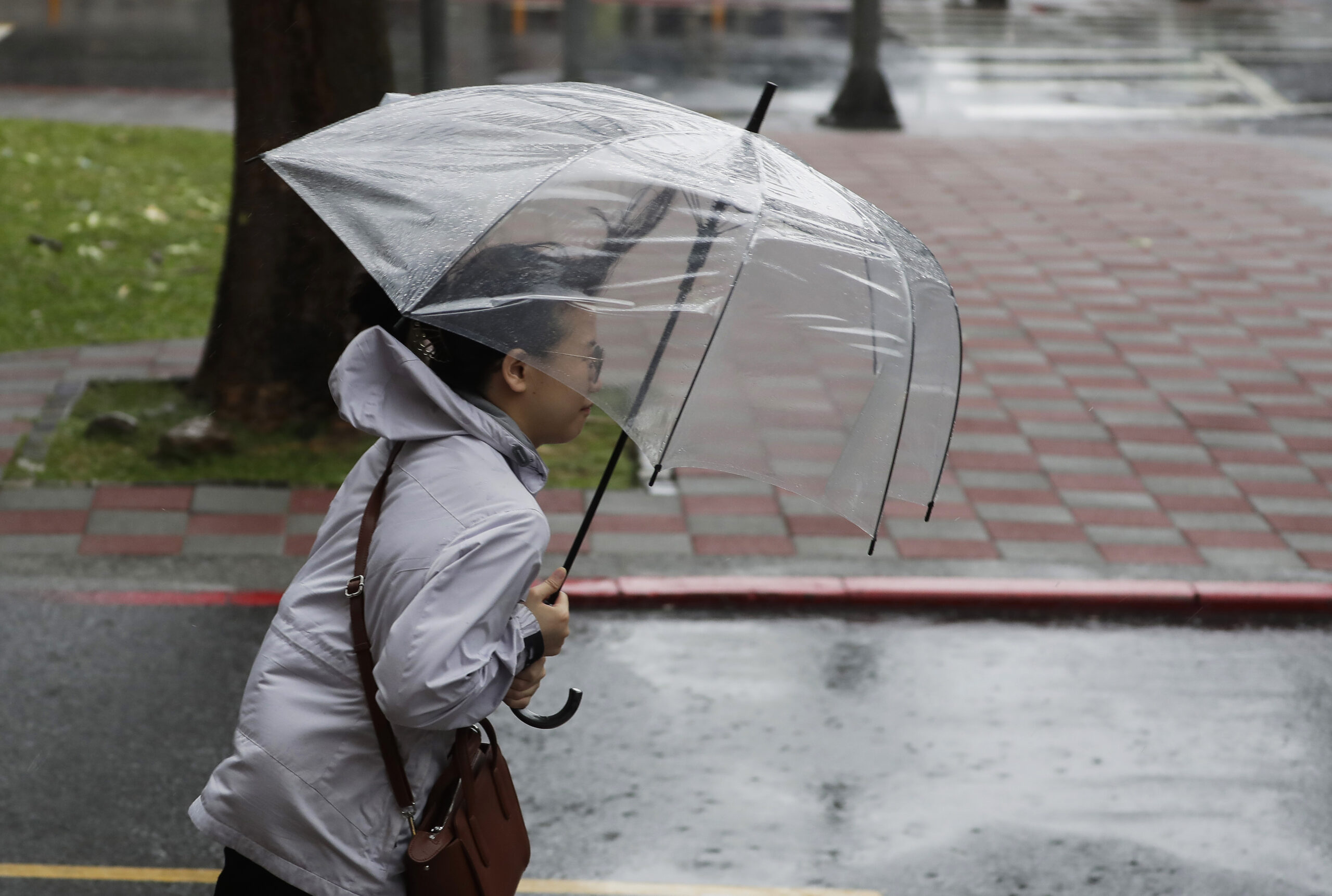
A woman struggles with her umbrella against gusts of wind generated by Typhoon Gaemi in Taipei, Taiwan, Wednesday, July 24, 2024. (Associated Press Photo/Chiang Ying-ying)
TAIPEI, Taiwan — Taiwan has seen flooding in low-lying areas, along with landslides and damage to homes and shops after Typhoon Gaemi made landfall on the island.
The storm swept up the western Pacific, leaving 22 people dead in the Philippines from flooding and landslides, and three in Taiwan, with more than 220 reported injured.
Offices and schools in Taiwan were closed for the second consecutive day on Thursday and people were urged to stay home and away from the coastline.
The island is regularly hit by typhoons and has boosted its warning systems, but its typography, high population density and high-tech economy make it difficult to avoid losses when such storms hit.
The capital, Taipei, was unusually quiet, with light rain falling and occasionally gusting winds.
READ: Typhoon Gaemi weakens as it leaves Taiwan for China
In the Philippines, the death toll rose due to drownings and landslides. At least three people are missing, according to police.
The Philippine Coast Guard reported that an oil tanker, MT Terra Nova, loaded with about 1.4 million liters (370,000 gallons) of industrial fuel oil sank off Limay town in Bataan province early Thursday and rescuers saved 15 of 16 crew members.
It’s not immediately clear if the sinking was related to the bad weather and rough seas but Transport Secretary Jaime Bautista said coast guard personnel could not immediately reach the area to contain a possible oil spill because of the rough sea conditions.
READ: Tanker with 1.4M liters of oil sinks off Bataan; ‘working fuel’ leaks
The storm prompted the cancellation of air force drills off Taiwan’s east coast.
Waves crash onto the coastline before typhoon Gaemi makes landfall in northeastern Taiwan’s Yilan county on Wednesday, July 24, 2024. Taiwan has shuttered offices, schools and tourist sites across the island ahead of a powerful typhoon due to make landfall later Wednesday. (Associated Press Photo/Johnson Lai)
Gaemi, called Carina in the Philippines, did not make landfall in that archipelago but enhanced its seasonal monsoon rains.
Philippine President Ferdinand Marcos Jr. has ordered authorities to speed up efforts to deliver food and other aid to isolated rural villages.
“People there may not have eaten for days,” Marcos said in a televised emergency meeting.
In the densely populated region around the Philippine capital, government work and school classes were suspended after rains flooded many areas.
The storm’s effects were expected to continue into Friday, July 26, as it moved in a northwestern direction toward mainland China. In Fujian province on China’s east coast, ferry routes were suspended on Wednesday and all train service will be halted on Thursday, China’s official Xinhua News Agency said.